Safety Considerations for Living Off the Grid
Living off the grid can be an exhilarating adventure, offering a unique blend of freedom and self-sufficiency. However, it’s crucial to navigate this lifestyle with a solid understanding of safety measures. Imagine waking up to the sound of birds instead of alarms, but also being aware that you’re responsible for your own safety. It’s a delicate balance between enjoying nature's beauty and being prepared for the unexpected. In this article, we’ll explore essential safety considerations that will help you thrive while living off the grid, ensuring that your experience is not only enriching but also secure.
First and foremost, being prepared for emergencies is paramount when you’re living off the grid. You might think, “What could possibly go wrong in my peaceful retreat?” But nature can be unpredictable, and having a plan can make all the difference. Start by assembling a well-stocked emergency kit that includes essentials such as:
- First aid supplies
- Non-perishable food items
- Water purification systems
- Flashlights and batteries
- Multi-tools or knives
Next, consider your communication methods. When you’re miles away from civilization, traditional phone lines may not be reliable. Invest in a satellite phone or a two-way radio to stay connected with family or emergency services. Finally, develop a clear emergency plan that includes evacuation routes and meeting points. This way, in the event of a natural disaster or emergency, you and your loved ones will know exactly what to do.
Living in harmony with nature means you’re likely to encounter wildlife. While this can be a thrilling aspect of off-grid living, it also comes with risks. Understanding how to coexist peacefully with local fauna is essential. For instance, you might find yourself sharing your space with curious raccoons or even larger animals like bears. To avoid dangerous interactions, it’s vital to:
Knowledge is power, especially when it comes to identifying local wildlife. Familiarize yourself with the animals that inhabit your area, particularly those that could pose a threat. For example, recognizing the difference between a harmless deer and a potentially aggressive bear can save your life. Research local species and their behaviors, and keep a field guide handy for quick reference.
When camping off the grid, safe practices are your best defense against unwanted wildlife encounters. Here are some tips to minimize risks:
- Store food in bear-proof containers.
- Keep your campsite clean and free of food scraps.
- Set up your tent away from animal trails and water sources.
By taking these precautions, you can enjoy the beauty of nature while reducing the likelihood of wildlife visits.
In the unfortunate event of a wildlife attack, knowing how to respond can be crucial. Stay calm and assess the situation. If confronted by a bear, for instance, make yourself look larger and back away slowly without turning your back on the animal. In the case of smaller animals, like snakes, it’s best to remain still until they leave the area. Having a clear understanding of these responses can be the difference between a close call and a disaster.
Natural hazards are another significant risk in off-grid living. From floods to wildfires, the elements can be unpredictable. To mitigate these dangers, regularly assess your surroundings and stay informed about weather patterns. Create a plan for natural disasters, including evacuation routes and safe zones. By being proactive, you can protect yourself and your loved ones from the unexpected.
When living off the grid, self-defense becomes an important consideration. With the isolation of rural life, it’s essential to equip yourself with the right strategies and tools for personal security. You might think, “I’m in a peaceful area; do I really need self-defense?” The answer is yes! Being prepared can help you feel more secure and confident in your surroundings.
Selecting the right self-defense tools can make a significant difference. Some effective options include:
- Pepper spray: A compact and easy-to-use deterrent.
- Personal alarms: Loud alarms can attract attention and scare off potential threats.
- Tactical gear: Consider items like a sturdy flashlight or a tactical pen for added protection.
Having these tools at your disposal can provide peace of mind while living independently.
Being aware of your surroundings is key to staying safe. Consider taking self-defense classes to enhance your skills and boost your confidence. Training in situational awareness techniques can help you recognize potential threats before they escalate. Remember, safety isn’t just about having tools; it’s also about being prepared mentally and physically.
Building connections with nearby communities can greatly enhance your safety. While the allure of solitude is a big part of off-grid living, fostering relationships with neighbors can provide a safety net. Networking and collaborating with others can offer support and security in times of need.
Effective communication is essential in any community. Establishing channels with neighbors can help you stay informed about local events and emergencies. Consider setting up a group chat or a community bulletin board to share important information. This way, you can stay connected and support each other in times of need.
Joining local safety initiatives can foster a sense of community and enhance personal safety. Look for opportunities to get involved in neighborhood watch programs or safety training workshops. By participating in these initiatives, you not only improve your safety but also contribute to the well-being of your entire community.
In conclusion, while living off the grid offers incredible freedom, it’s essential to prioritize safety. By preparing for emergencies, understanding wildlife interactions, employing self-defense strategies, and building community connections, you can enjoy a secure and sustainable lifestyle. Remember, safety is not just a precaution; it’s a mindset that allows you to fully embrace the off-grid experience.
Q: What should I include in my emergency preparedness kit?
A: Your emergency kit should include first aid supplies, non-perishable food, water purification systems, flashlights, and multi-tools.
Q: How can I prevent wildlife encounters?
A: Store food properly, keep your campsite clean, and set up away from animal trails and water sources.
Q: What self-defense tools are recommended for off-grid living?
A: Consider carrying pepper spray, personal alarms, and tactical gear for self-defense.
Q: How can I connect with my neighbors?
A: Establish communication channels through group chats or community bulletin boards to share important information and support each other.
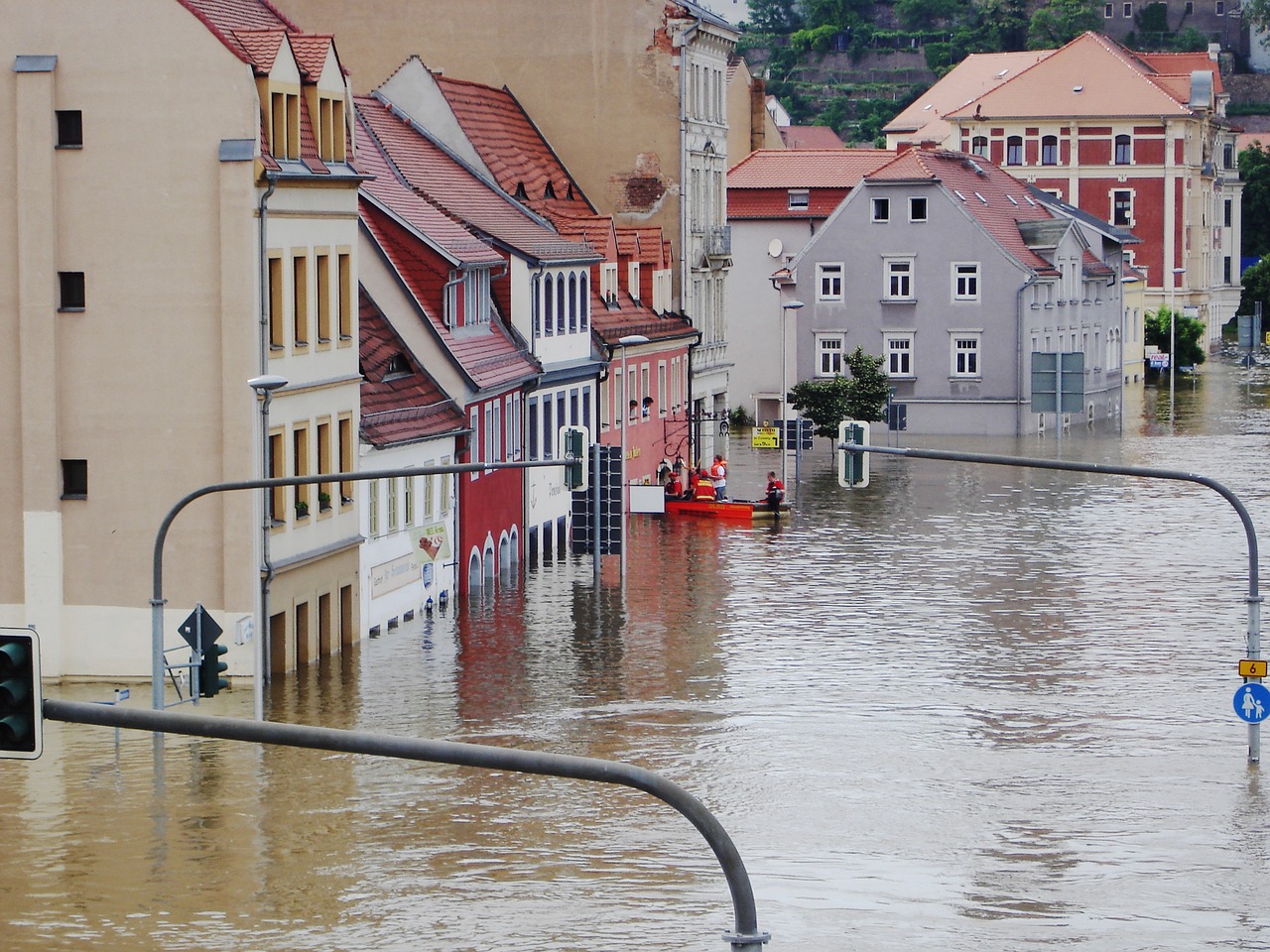
Emergency Preparedness
When you're living off the grid, the importance of cannot be overstated. Imagine being in a remote location, surrounded by nature's beauty, but suddenly facing an unforeseen event like a storm or medical emergency. It’s crucial to have a robust plan in place to ensure your safety and that of your loved ones. So, what does it mean to be truly prepared? Well, it starts with having the right supplies, effective communication methods, and a clear plan of action.
First and foremost, let’s talk about essential supplies. These are your lifelines, your safety net in times of crisis. Here’s a quick rundown of what you might want to consider:
- First Aid Kit: Always have a well-stocked first aid kit. Include bandages, antiseptics, medications, and any personal prescriptions.
- Non-Perishable Food: Stock up on canned goods, dried fruits, and nuts that can last for months.
- Water Filtration System: Clean drinking water is vital. Invest in a reliable filtration system or purification tablets.
- Flashlights and Batteries: Power outages can happen, so ensure you have a good flashlight and extra batteries.
- Multi-tool or Swiss Army Knife: A versatile tool can be invaluable in various situations.
But supplies alone aren’t enough. You need to have a solid communication plan. In a world where cell service can be spotty, consider alternative methods to stay connected. Satellite phones or two-way radios can be lifesavers. Make sure you have a list of important contacts, including local emergency services, neighbors, and family members. This way, in case of an emergency, you won't be scrambling to find the right numbers.
Next up is creating an emergency plan. Gather your family and discuss potential scenarios that could arise. What will you do if there’s a wildfire? How will you respond to a medical emergency? Designate a meeting point in case you get separated, and practice your plan regularly. Think of it as a fire drill; it may not seem necessary until the moment you need it the most.
Additionally, consider keeping a detailed log of your emergency preparedness efforts. This could include a checklist of supplies, notes on your communication plan, and records of any training you’ve undertaken. Not only will this keep you organized, but it can also help you refine your strategies over time. You might even want to create a table to track your supplies and their expiration dates:
| Item | Quantity | Expiration Date |
|---|---|---|
| First Aid Kit | 1 | Check monthly |
| Canned Goods | 20 | Varies |
| Water Filters | 2 | Check yearly |
In summary, being prepared for emergencies while living off the grid is all about having the right supplies, maintaining effective communication, and creating a comprehensive plan. It’s about turning the unexpected into the manageable. Remember, when you’re prepared, you can focus on enjoying the beauty of nature without the constant nagging worry of what might go wrong.
Q: What should I include in my first aid kit?
A: Your first aid kit should include bandages, antiseptics, pain relievers, any personal medications, and a first aid manual.
Q: How can I improve my communication methods off the grid?
A: Consider investing in satellite phones or two-way radios, and establish a list of important contacts.
Q: What is the best way to prepare for natural disasters?
A: Create an emergency plan, stock up on essential supplies, and regularly practice your plan with your family.

Wildlife Encounters
Living off the grid can be an exhilarating experience, but it also comes with its share of challenges, especially when it comes to . Imagine waking up to the sound of rustling leaves or the distant call of a wild animal. While these moments can be magical, they also pose risks that require your attention and preparedness. It's essential to develop strategies for safely coexisting with local fauna in order to minimize dangerous interactions.
One of the first steps in ensuring your safety is to identify the wildlife species that inhabit your area. Every region has its unique set of animals, some of which may be more dangerous than others. By understanding their behaviors and habitats, you can take proactive measures to avoid conflicts. For instance, knowing that bears are active in your area during certain seasons can help you adjust your camping and food storage practices accordingly.
To effectively manage wildlife encounters, you should start by learning about the potentially dangerous animals in your region. This includes understanding their habits, diets, and the times when they are most active. For example, if you live in an area with mountain lions, recognizing their tracks and knowing that they are more likely to hunt at dawn or dusk can help you avoid unexpected encounters. Here are some tips to help you identify local wildlife:
- Research local wildlife guides or apps that provide information on animal tracks and behaviors.
- Join local wildlife observation groups to learn from experienced members.
- Keep a journal of your sightings to track patterns and behaviors.
Additionally, consider investing in a good pair of binoculars. They can be invaluable for observing wildlife from a safe distance, allowing you to appreciate nature without putting yourself in harm's way.
When camping off the grid, implementing safe camping practices is crucial for minimizing wildlife encounters. One of the most effective ways to deter animals is through proper food storage. Always store food in airtight containers and hang it from a tree, at least ten feet off the ground and four feet away from the trunk. This simple act can significantly reduce the chances of attracting curious critters to your campsite.
Another key factor is the selection of your campsite. Avoid setting up near known animal trails or water sources, as these areas are likely to attract wildlife. Instead, choose a spot that is open and away from dense vegetation. Not only will this reduce the likelihood of encounters, but it will also provide you with better visibility to monitor your surroundings.
Even with the best precautions, wildlife encounters can still occur. If you find yourself in a dangerous situation, knowing how to respond can be the difference between safety and disaster. Here are immediate actions to take:
- Stay calm and do not run. Sudden movements may provoke the animal.
- Make yourself appear larger by raising your arms or opening your jacket.
- Speak firmly and loudly to assert your presence.
- If the animal approaches, back away slowly while keeping eye contact.
In the unfortunate event of an attack, having a plan in place is crucial. Carrying bear spray or a whistle can be effective deterrents against aggressive wildlife. Remember, your safety is paramount, and being prepared can help you navigate these encounters more effectively.
In conclusion, while living off the grid offers unparalleled freedom and connection to nature, it is essential to respect the wildlife that shares your environment. By understanding local species, practicing safe camping techniques, and knowing how to respond in emergencies, you can create a safer and more enjoyable off-grid experience.
Q: What should I do if I encounter a bear while hiking?
A: Stay calm, avoid direct eye contact, and back away slowly. If the bear approaches, make yourself look larger and make noise. If attacked, play dead or fight back, depending on the type of bear.
Q: How can I keep my food safe from wildlife while camping?
A: Store food in airtight containers and hang it from a tree, away from your tent. Utilize bear-proof containers if available.
Q: Are there any specific tools I should carry for wildlife encounters?
A: Carrying bear spray, a whistle, and a first aid kit can be beneficial. A flashlight can also help you navigate at night and deter animals.

Identifying Local Species
When you decide to embrace the off-grid lifestyle, one of the most critical skills you can develop is the ability to identify local wildlife species. Understanding the fauna in your area not only enriches your experience but also enhances your safety. Imagine wandering through the woods, feeling at one with nature, yet knowing exactly which animals you might encounter. This knowledge can be the difference between a peaceful coexistence and a dangerous encounter. So, how do you start identifying these local species?
First and foremost, familiarize yourself with the common animals in your region. Each area has its unique set of wildlife, and knowing what's out there can help you prepare for potential encounters. For instance, if you're in a forested area, you might come across deer, bears, or even snakes. Understanding their behaviors, such as when they are most active or how they react to human presence, can significantly mitigate risks. You can create a simple table to record your findings:
| Animal | Behavior | Safety Tips |
|---|---|---|
| Black Bear | Mostly active during dawn and dusk | Store food properly, make noise while hiking |
| Rattlesnake | Often hides in tall grass and underbrush | Wear boots, watch where you step |
| Mountain Lion | Generally avoids humans but can be aggressive if cornered | Travel in groups, make yourself look larger |
Next, consider investing in a good field guide specific to your region. These guides provide detailed descriptions and images of local species, making it easier to identify them in the wild. You might even want to download a wildlife identification app on your smartphone. These apps can be incredibly handy, allowing you to take pictures and get instant information about the species you encounter.
Another effective method is to observe animal tracks and signs. Learning to recognize footprints, scat, and other signs of wildlife activity can give you insights into what animals are nearby. For example, a deer track is quite different from a bear track, and knowing these differences can help you gauge the level of wildlife activity in your area. Consider keeping a journal to document your observations; it’s a fun way to track your learning progress.
Lastly, don’t underestimate the power of community knowledge. Engaging with local residents or joining online forums can provide invaluable insights into the wildlife in your area. You can exchange tips and experiences, which can be particularly useful if you’re new to off-grid living. Remember, the more informed you are, the safer and more enjoyable your off-grid adventure will be.
- What should I do if I encounter a bear? - Remain calm, back away slowly, and avoid eye contact. Do not run.
- How can I tell if a snake is venomous? - Look for features such as a triangular head, slit-like pupils, and rattles on the tail.
- Is it safe to feed wildlife? - No, feeding wildlife can lead to dangerous encounters and dependency on humans.
- How can I learn more about local wildlife? - Consider joining local wildlife clubs or participating in guided nature walks.
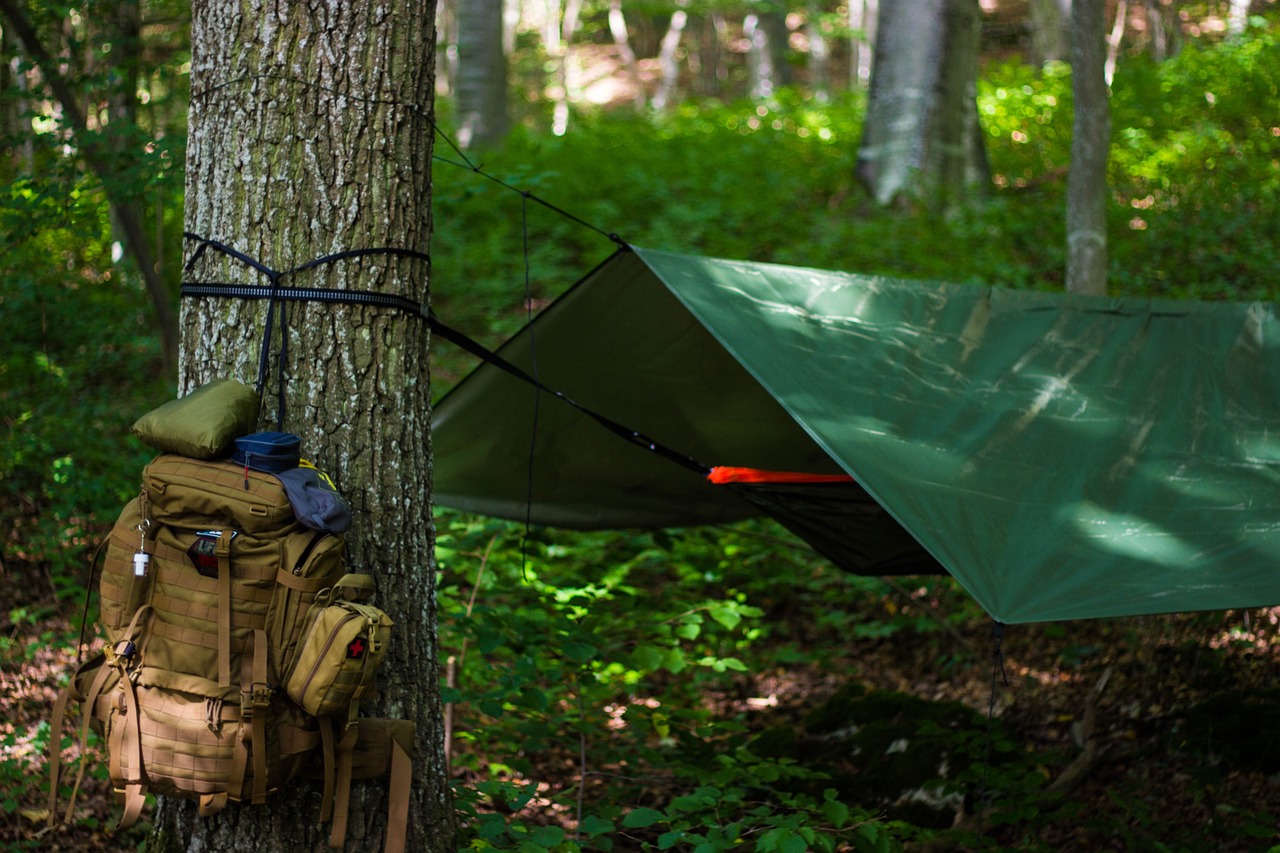
Safe Camping Practices
When it comes to camping off the grid, safety should be your top priority. Imagine setting up your tent under a starlit sky, the sounds of nature surrounding you—it's a beautiful picture, but it can quickly turn into a nightmare if you're not prepared. The key to a successful camping experience is understanding how to minimize risks, especially when it comes to wildlife encounters and environmental hazards.
First and foremost, food storage is crucial. It's not just about keeping your snacks fresh; it's about keeping wildlife at bay. Bears, raccoons, and other critters have a keen sense of smell and will come looking for food if they catch a whiff of your dinner. Always store food in airtight containers and hang it from a tree branch at least 10 feet off the ground and 4 feet away from the trunk. This not only keeps your food safe but also protects you from unwanted animal visitors.
Next, consider your campsite selection. Choose a location that is at least 200 feet away from water sources to prevent contamination and to avoid attracting wildlife. Look for flat ground to set up your tent, away from dead trees or branches that could fall. A good rule of thumb is to camp in areas that are already established to reduce your impact on the environment and minimize your risk of encountering wildlife.
Additionally, practicing good hygiene is essential while camping. Dispose of waste properly by using designated toilets or digging a hole at least 6-8 inches deep and 200 feet away from water sources. This not only keeps your campsite clean but also helps prevent attracting wildlife. Remember, the cleaner your campsite, the less likely you are to have unexpected visitors.
In case of an emergency, having a plan is vital. Make sure to carry a first aid kit and know how to use the items within it. Being prepared can make all the difference if an incident occurs. Also, familiarize yourself with the area and its potential hazards—whether it’s a sudden weather change or the presence of dangerous wildlife.
Finally, always let someone know your camping plans. Share your itinerary and expected return time with a friend or family member. This way, if something goes awry, help can be dispatched quickly. Remember, being off the grid doesn’t mean you have to be off the map!
By following these safe camping practices, you can enjoy the great outdoors while minimizing risks. So, pack your gear, set your sights on adventure, and remember that a little preparation goes a long way in ensuring a safe and enjoyable camping experience.
- What should I pack for a safe camping trip? Always include a first aid kit, food storage containers, a water purification system, and a multi-tool.
- How can I identify dangerous wildlife in the area? Research local wildlife before your trip and familiarize yourself with their behavior and habitats.
- What should I do if I encounter a bear? Make noise to alert the bear of your presence, back away slowly, and never run.
- How can I stay connected while off the grid? Consider bringing a satellite phone or a personal locator beacon for emergencies.
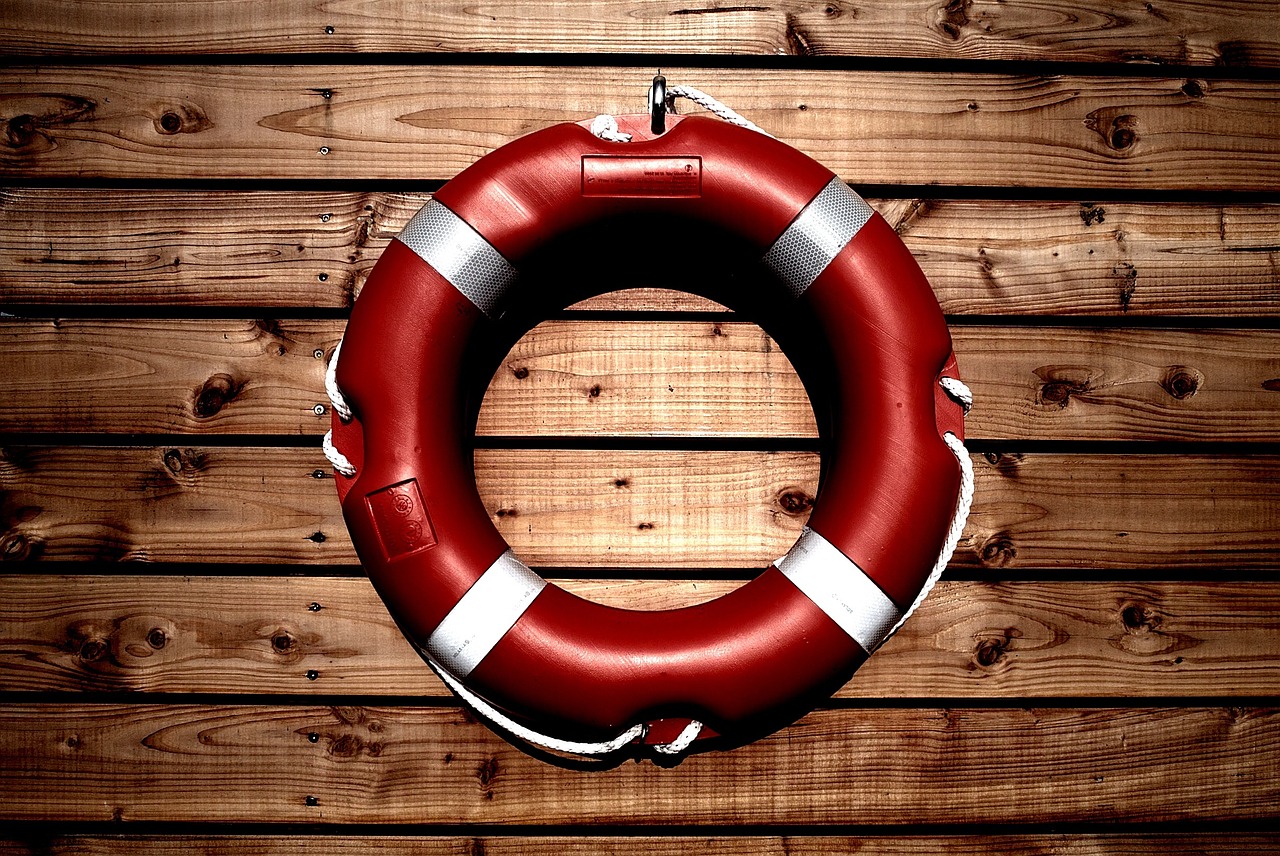
Emergency Response to Wildlife Attacks
Encountering wildlife while living off the grid can be both thrilling and terrifying. In the unfortunate event of a wildlife attack, your immediate response can be the difference between a close call and a serious injury. It's essential to remain calm and act swiftly. First and foremost, never turn your back on the animal; this can trigger a chase response. Instead, stand your ground and assess the situation. Many animals will back off if they sense you are not afraid.
Understanding the type of animal you’re dealing with is crucial. For instance, if you encounter a bear, your response will differ significantly from that of a snake or a mountain lion. In general, here are some immediate actions to consider:
- Make Noise: Yell, clap your hands, or use a whistle to make your presence known. Most wildlife will avoid human interaction if they know you’re there.
- Back Away Slowly: If the animal is not aggressive, slowly back away while maintaining eye contact. This shows you are not a threat.
- Use Deterrents: If you have bear spray or another deterrent, be prepared to use it. Aim for the animal’s face and spray in short bursts.
- Protect Yourself: If an attack is imminent, protect your vital areas. Curl into a ball if it’s a bear, and fight back if it’s a smaller animal.
After the immediate danger has passed, assess your injuries and seek help if necessary. It's vital to have a first aid kit readily available in your off-grid setup. Make sure it includes supplies to treat bites, scratches, or other injuries. Here’s a quick rundown of what to keep in your first aid kit for wildlife encounters:
| Item | Purpose |
|---|---|
| Antiseptic wipes | To clean wounds |
| Bandages | To cover cuts and abrasions |
| Gauze and tape | For larger wounds |
| Ice pack | To reduce swelling |
| Emergency blanket | To keep warm |
Additionally, it’s wise to have a communication plan in place. If you’re in a remote area, ensure that you have a reliable way to contact emergency services or friends who can assist. Satellite phones or two-way radios can be invaluable in these situations.
Lastly, consider documenting any wildlife encounters. Keeping a journal can help you identify patterns in wildlife behavior and improve your response strategies in the future. Remember, preparation is key, and knowing how to respond to wildlife attacks can significantly enhance your safety while living off the grid.
Q: What should I do if I see a bear while hiking?
A: Stand your ground, make noise, and back away slowly. Never run, as this may trigger a chase response.
Q: How can I prevent wildlife encounters?
A: Store food securely, avoid leaving waste around your campsite, and make noise while hiking to alert animals of your presence.
Q: What are the best self-defense tools for wildlife encounters?
A: Bear spray is highly recommended for larger animals, while a sturdy walking stick can be useful for smaller threats. Always prioritize non-lethal methods first.
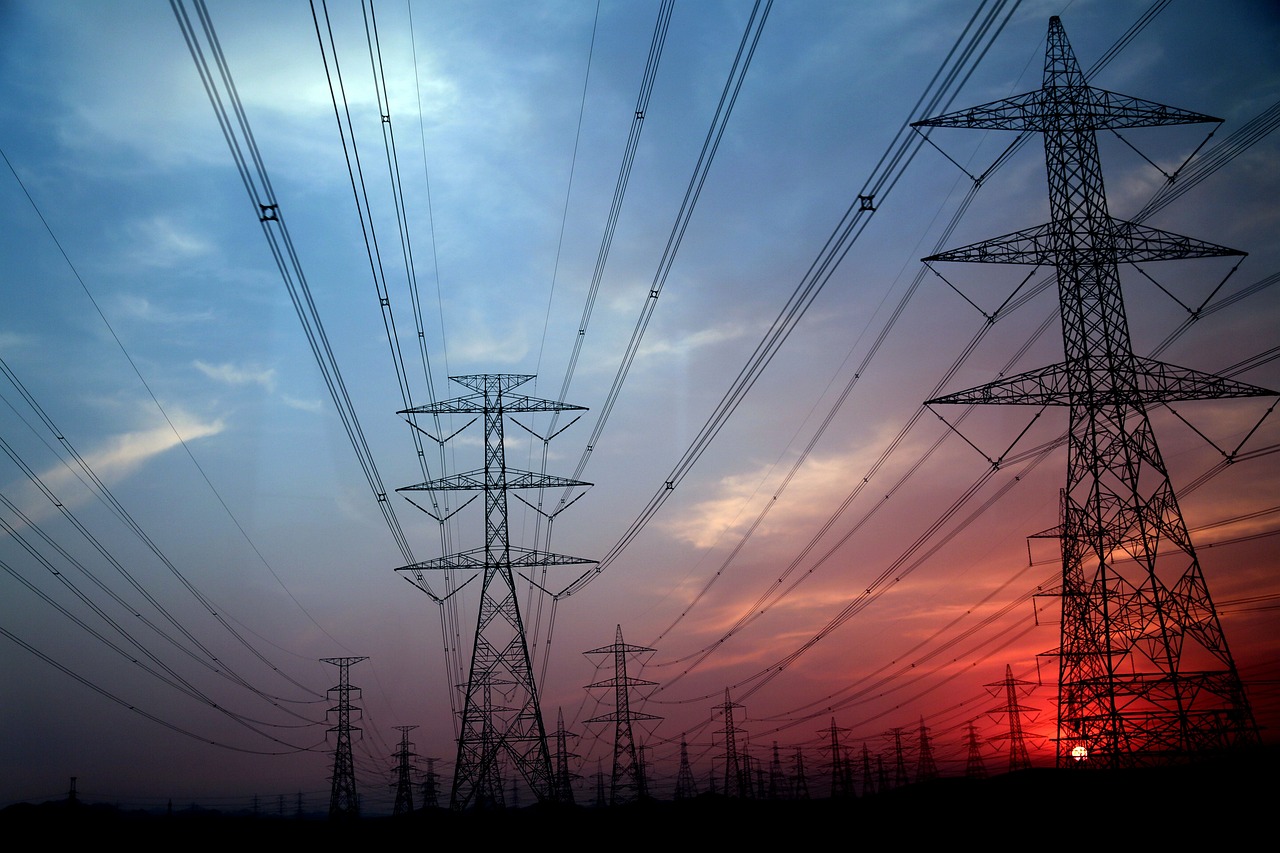
Preventing Natural Hazards
Living off the grid can be an exhilarating experience, but it also comes with its fair share of risks, particularly when it comes to natural hazards. Understanding how to assess and mitigate these dangers is crucial for ensuring your safety and well-being. Imagine your serene cabin in the woods, surrounded by nature's beauty, but lurking beneath that picturesque landscape are potential threats like floods, wildfires, and landslides. So, how do you prepare for these unexpected events?
First and foremost, it's essential to stay informed about the natural hazards specific to your area. Different regions have different risks—some may be prone to heavy rains and flooding, while others might face wildfires or earthquakes. By knowing what to expect, you can take proactive steps to protect yourself and your property. For instance, if you live in a flood-prone area, consider investing in sandbags and creating a drainage system around your home to redirect water away from your living space.
Another key strategy is to develop a comprehensive emergency plan. This plan should include evacuation routes, a communication strategy with family members, and a designated meeting point in case of separation. Ensure that everyone in your household is familiar with the plan and practices it regularly. It's like having a fire drill at school; it may seem tedious, but when the time comes, you'll be grateful for the preparation.
Moreover, maintaining a well-stocked emergency kit is vital. Your kit should contain essential supplies that could sustain you and your family during a natural disaster. Here’s a quick rundown of items to consider:
- Non-perishable food and water (enough for at least three days)
- First aid supplies
- Flashlights and extra batteries
- A multi-tool or knife
- Whistle to signal for help
- Maps of the local area
Additionally, consider the geography of your property. If you’re in a fire-prone area, create a defensible space by clearing away dead vegetation and maintaining a buffer zone around your home. This not only reduces the risk of fire spreading to your property but also gives you peace of mind. Similarly, if your home is located on a slope, be aware of the potential for landslides during heavy rains. You might want to consult with a local expert to assess the risk and take necessary precautions, such as reinforcing slopes or installing drainage systems.
Finally, never underestimate the power of community. Establish connections with your neighbors, as they can be invaluable resources during emergencies. Share information about local hazards, and consider forming a neighborhood watch or safety group. This collaborative approach not only enhances safety but also fosters a sense of camaraderie among residents. After all, when the chips are down, it’s often the people around you who can help you the most.
In conclusion, while living off the grid offers a unique lifestyle, it’s essential to be proactive about preventing natural hazards. By understanding your environment, creating an emergency plan, maintaining a well-stocked kit, and building community connections, you can significantly reduce the risks associated with off-grid living. Remember, preparedness is not just about survival; it’s about thriving in the face of nature’s unpredictability.
Q1: What should I include in my emergency kit?
A1: Your emergency kit should include non-perishable food, water, first aid supplies, flashlights, batteries, a multi-tool, a whistle, and local maps.
Q2: How can I assess the natural hazards in my area?
A2: Research local weather patterns, geological surveys, and community resources to understand the potential risks in your area.
Q3: Why is community connection important for off-grid living?
A3: Building connections with neighbors can enhance safety through shared resources, information, and support during emergencies.
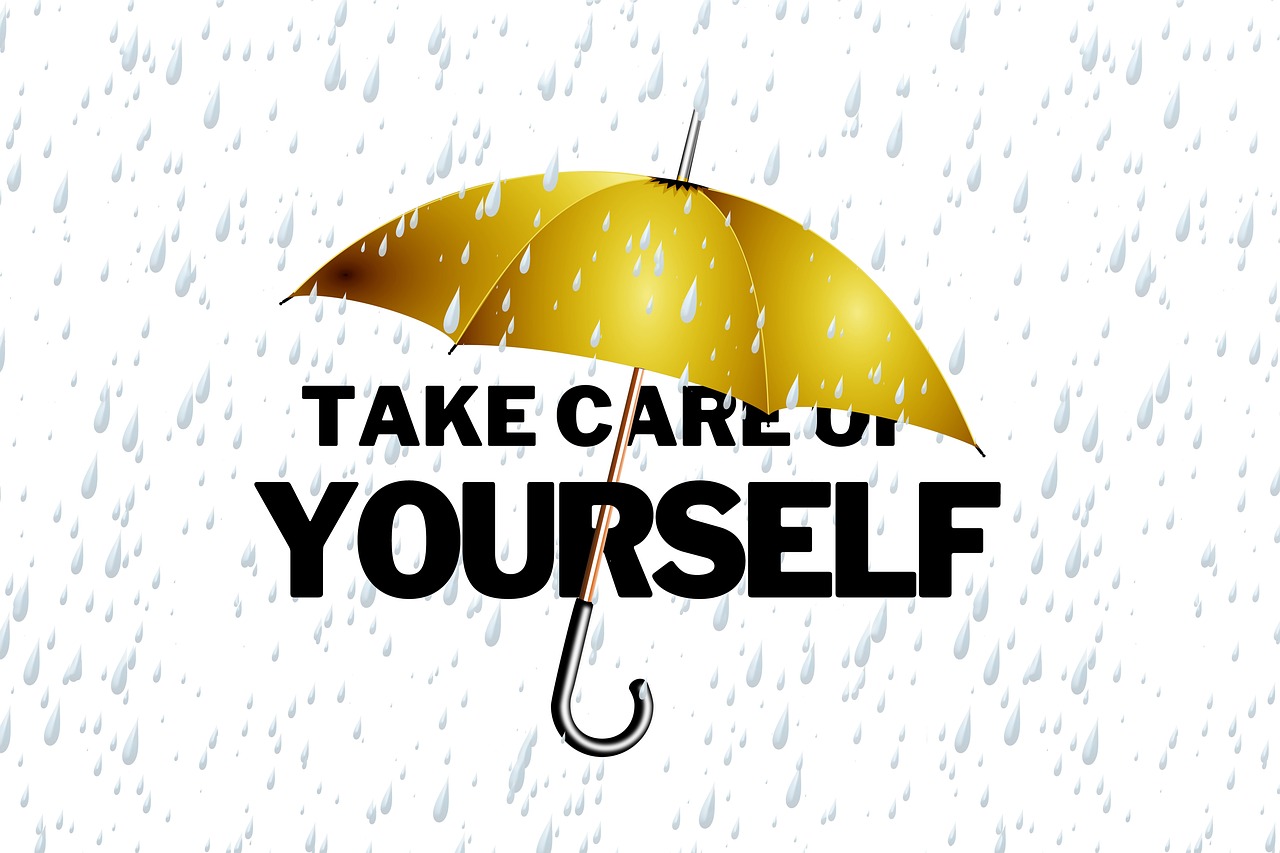
Self-Defense Strategies
When living off the grid, the importance of self-defense cannot be overstated. It’s not just about protecting yourself from potential intruders; it’s also about fostering a sense of security in an environment where help may not be readily available. Imagine being in the vast wilderness, surrounded by nature's beauty, but also knowing that you need to be prepared for any unexpected situations. This duality is what makes self-defense strategies essential for anyone embracing an off-grid lifestyle.
First and foremost, selecting the right self-defense tools is crucial. The tools you choose should be effective, easy to carry, and suitable for your environment. Options like pepper spray, personal alarms, and tactical gear can make a world of difference. For instance, pepper spray is compact and can incapacitate an attacker long enough for you to escape. Personal alarms, on the other hand, can draw attention to your situation, which can deter would-be assailants. Below is a simple comparison of common self-defense tools:
| Self-Defense Tool | Effectiveness | Portability | Ease of Use |
|---|---|---|---|
| Pepper Spray | High | Very Portable | Easy |
| Personal Alarm | Medium | Very Portable | Very Easy |
| Tactical Knife | High | Portable | Moderate |
However, tools alone won't guarantee your safety. It's essential to combine them with training and awareness. Knowing how to use your self-defense tools effectively is as important as having them. Consider enrolling in a self-defense class where you can learn techniques tailored to real-life situations. Training not only enhances your skills but also boosts your confidence. You’ll find that awareness of your surroundings can often prevent dangerous situations from arising in the first place. Ask yourself: Are you aware of who is around you? Do you notice the changes in your environment? Such vigilance can be your first line of defense.
Additionally, practicing situational awareness can help you identify potential threats before they escalate. This means being attentive to your surroundings, recognizing unusual behaviors, and trusting your instincts. For example, if you notice someone lingering too long near your property, it’s wise to assess the situation calmly and prepare for any necessary actions. Just like a deer sensing a predator, your instincts can guide you in making safe choices.
Finally, self-defense is not just about physical tools and techniques; it’s also about having a support network. Building connections with neighbors and local communities can provide an added layer of security. When you know the people around you, you can look out for one another and share valuable information about safety in your area. Participation in local safety initiatives, such as neighborhood watch programs, can further enhance your security. Remember, there’s strength in numbers!
In summary, self-defense strategies for off-grid living encompass a combination of the right tools, training, situational awareness, and community connections. By preparing yourself in these areas, you can enjoy the freedom of living off the grid while ensuring your safety and peace of mind.
- What is the best self-defense tool for beginners? Pepper spray is often recommended for beginners due to its ease of use and effectiveness.
- How can I improve my situational awareness? Regularly practice being mindful of your surroundings and consider taking a self-defense class to enhance your skills.
- Is it necessary to join a local safety initiative? While not mandatory, joining a local safety initiative can provide valuable connections and resources for enhancing your safety.

Choosing Self-Defense Tools
When it comes to living off the grid, the importance of personal safety cannot be overstated. Choosing the right self-defense tools is essential for ensuring your security in a remote environment. The vastness of nature can be both beautiful and intimidating, and having the right tools at your disposal can make all the difference in an emergency situation. But how do you choose the right tools? It’s not just about picking up the first thing you see; it requires understanding your environment, assessing potential threats, and knowing what you feel comfortable using.
First and foremost, consider the types of threats you may encounter. Are you more likely to face human threats or wildlife encounters? This distinction will guide your choices. For example, if you’re in an area known for aggressive wildlife, tools like bear spray or noise-making devices can be invaluable. On the other hand, if you’re more concerned about personal safety from intruders, personal alarms or tactical gear may be more appropriate.
Here are some popular self-defense tools to consider:
- Pepper Spray: Compact and easy to carry, pepper spray can effectively deter an attacker while allowing you to escape.
- Personal Alarms: These devices emit a loud sound to attract attention and scare off potential threats, making them a great non-violent option.
- Tactical Flashlights: Not only do these provide illumination, but they can also be used to temporarily blind an assailant, giving you a chance to escape.
- Multi-tools: A good multi-tool can serve various purposes, from basic repairs to self-defense, making it a versatile addition to your toolkit.
It's crucial to remember that the effectiveness of any self-defense tool relies heavily on your ability to use it. Therefore, training is key. Familiarize yourself with your chosen tools through practice and, if possible, consider taking self-defense classes. This will not only boost your confidence but also enhance your reaction time in stressful situations.
Additionally, think about portability and accessibility. You want your self-defense tools to be readily available without being cumbersome. For example, a small can of pepper spray can easily fit in your pocket, while a tactical flashlight can be attached to your belt or bag for quick access. The goal is to ensure that when the moment arises, you can reach for your tool without fumbling around.
Lastly, always check the legality of your self-defense tools in your area. Laws regarding self-defense weapons can vary significantly, and it's essential to stay informed to avoid any legal issues. Research your local regulations and ensure that your choices align with them.
In conclusion, choosing the right self-defense tools is a vital aspect of living off the grid safely. By assessing potential threats, selecting appropriate tools, and training effectively, you can enhance your personal security and enjoy the freedom that comes with an off-grid lifestyle.
Q: What is the best self-defense tool for beginners?
A: For beginners, a personal alarm or pepper spray is often recommended due to their ease of use and effectiveness without requiring extensive training.
Q: Are there any self-defense tools that are illegal?
A: Yes, some self-defense tools, like certain types of knives or firearms, may be illegal in certain areas. Always check local laws before purchasing or carrying any self-defense tool.
Q: How can I practice using my self-defense tools?
A: Consider enrolling in self-defense classes, or practice at home in a safe environment. Many tools can also be practiced with dummy models or through simulations.

Training and Awareness
When it comes to living off the grid, are not just optional—they're essential! Imagine navigating through the wilderness without a map; that's what living off the grid can feel like without the right skills and knowledge. Being aware of your surroundings and knowing how to respond to potential threats can make a world of difference in ensuring your safety. So, how do you cultivate this awareness? It starts with understanding your environment and the potential risks that come with it.
First off, situational awareness is key. This means being conscious of what's happening around you at all times. Whether you're chopping wood, hiking, or just enjoying nature, keep an eye out for any unusual sounds or movements. Your instincts are your best friend in the wild. This awareness can be honed through practice; consider taking a course in wilderness survival or self-defense. Many local organizations offer workshops that can teach you how to identify potential dangers and respond effectively.
In addition to situational awareness, training in self-defense techniques can empower you to handle unexpected encounters. Knowing how to protect yourself physically can boost your confidence and reduce fear. Look for classes that focus on practical skills, such as defensive maneuvers and escape tactics. Many of these classes also emphasize the importance of de-escalation, which can be critical in avoiding confrontations altogether.
Furthermore, consider investing time in learning about first aid and emergency response. Accidents can happen, and being prepared to handle them can save lives. Basic first aid training can equip you with the skills to manage injuries, treat bites, or even perform CPR if needed. Many organizations, such as the Red Cross, offer courses that can be invaluable for anyone living in isolated areas.
Another aspect of awareness is understanding the local wildlife and their behaviors. This knowledge can help you avoid dangerous encounters. For instance, knowing which animals are active at certain times of the year or what attracts them to your living area can guide your actions. You might even consider creating a wildlife chart that outlines local species, their habits, and tips for coexisting peacefully. This chart could look something like this:
| Animal | Behavior | Safety Tips |
|---|---|---|
| Black Bear | Forages for food, especially in spring and summer | Keep food stored securely, make noise while hiking |
| Mountain Lion | Active at dawn and dusk | Make yourself look bigger, back away slowly |
| Snakes | Camouflaged, often near water | Wear sturdy boots, watch where you step |
Finally, don't underestimate the power of community. Engaging with others who share your off-grid lifestyle can provide valuable insights and support. Attend local workshops, join online forums, or participate in community events focused on survival skills. Sharing experiences and knowledge can enhance your training and create a network of support that can be invaluable in times of need.
In conclusion, cultivating awareness and undergoing training are vital components of living safely off the grid. By actively engaging in these practices, you're not just protecting yourself—you're enriching your experience and ensuring that your off-grid lifestyle is both secure and fulfilling.
- What is situational awareness and why is it important? Situational awareness involves being aware of your surroundings and understanding potential threats. It's crucial for personal safety, especially in isolated areas.
- How can I learn self-defense? Look for local classes or workshops that focus on practical self-defense techniques. Many community centers and martial arts studios offer courses.
- Is first aid training necessary for off-grid living? Yes, first aid training is essential as it prepares you to handle injuries and emergencies effectively.
- What should I include in a wildlife chart? Include local animal species, their behaviors, and safety tips for avoiding encounters.

Community Connections
When you're living off the grid, it might feel like you're in your own little bubble, surrounded by nature and the peace it brings. However, building connections with nearby communities is not just a nice-to-have; it’s a crucial aspect of ensuring your safety and well-being. Think of it like this: even the most skilled survivalist wouldn’t want to face a storm alone without a lifeline. Establishing a network can provide you with resources, support, and a sense of belonging that can make your off-grid experience much more enriching.
One of the first steps to fostering these connections is to get to know your neighbors. Start by introducing yourself and finding common ground. You might be surprised at how many people share your passion for sustainable living or outdoor adventures. These relationships can be invaluable when emergencies arise. For instance, if you need assistance during a power outage or a medical emergency, having a neighbor you can rely on can make all the difference.
Effective communication is key in these relationships. Establishing communication channels can ensure that everyone is on the same page during emergencies. Whether it’s setting up a group chat, using walkie-talkies, or even creating a community bulletin board, having a reliable way to communicate can help coordinate efforts in times of need. Consider holding regular meetings or informal gatherings to discuss safety concerns and share resources. This not only strengthens your connections but also enhances your collective preparedness.
Moreover, participating in local safety initiatives can significantly boost your community ties. Think of it as building your own safety net. Many areas have neighborhood watch programs or community safety training workshops that focus on preparedness and self-defense. By joining these initiatives, you not only contribute to the safety of your community but also gain valuable skills and knowledge that could come in handy. Plus, it’s a great way to meet like-minded individuals who share your values.
In addition to formal programs, consider organizing community events such as potlucks or outdoor activities. These gatherings can help break the ice and create a friendly atmosphere where people feel comfortable sharing their experiences and concerns. You might even find a neighbor who has expertise in areas like first aid, wilderness survival, or emergency preparedness, which could greatly benefit your own off-grid lifestyle.
In summary, while living off the grid offers independence and self-sufficiency, it’s essential to remember the importance of community connections. By fostering relationships with your neighbors, establishing effective communication channels, and participating in local initiatives, you create a safer and more supportive environment for yourself and your family. After all, we’re stronger together, and in the wilderness, a little help can go a long way.
- How can I find neighbors living off the grid? Start by exploring local online forums, social media groups, or community boards dedicated to off-grid living.
- What are some effective communication methods for off-grid communities? Consider using walkie-talkies, ham radios, or group messaging apps that don’t rely on cellular service.
- How can I participate in local safety initiatives? Look for neighborhood watch programs, community meetings, or volunteer opportunities in your area.
- What are some tips for organizing community events? Keep it casual, choose a central location, and encourage everyone to bring a dish or activity to share.

Establishing Communication Channels
When you decide to live off the grid, one of the most vital aspects to consider is how you will communicate with the outside world. It's easy to think that isolation means you won't need to keep in touch with anyone, but that couldn't be further from the truth. Establishing reliable communication channels can be a lifesaver in emergencies, and it also helps foster a sense of community. Imagine living in a remote area and suddenly facing an unforeseen situation—like a medical emergency or a natural disaster—without a way to reach out for help. That thought alone should compel you to prioritize your communication setup.
There are several methods to consider when setting up your communication channels. First and foremost, cellular phones are a common choice, but their effectiveness can vary significantly based on your location. If you live in a remote area, you may find that cell service is spotty or non-existent. In such cases, you might want to explore alternatives like satellite phones, which provide coverage almost anywhere on the planet. While they can be more expensive, the peace of mind they offer is invaluable.
Another option is to invest in two-way radios or walkie-talkies. These devices can be incredibly useful for short-range communication, especially if you have a group of people living nearby. You can easily stay in touch without relying on cellular networks, making them a practical choice for off-grid living. Additionally, consider setting up a community bulletin board where neighbors can post messages, alerts, or even organize gatherings. This can be as simple as a corkboard at a central location, allowing everyone to stay informed and connected.
Lastly, don't underestimate the power of online platforms. Even if you're living off the grid, many people have access to the internet through satellite connections or mobile hotspots. Joining local social media groups or forums can help you stay in touch with community events, safety alerts, and other essential information. Just remember to keep your digital security in mind; use strong passwords and be cautious about sharing personal information.
In summary, establishing solid communication channels is crucial for anyone living off the grid. Whether through traditional methods like phones and radios or modern solutions like online platforms, staying connected can make a world of difference in ensuring your safety and well-being.
- What is the best communication method for off-grid living? It depends on your location. Satellite phones are excellent for remote areas, while two-way radios work well for short distances.
- How can I ensure my communication devices stay charged? Consider investing in solar chargers or backup battery systems to keep your devices powered.
- Are there any free communication options? Yes! Community bulletin boards and local meet-ups can be great ways to stay connected without any cost.

Participating in Local Safety Initiatives
When it comes to living off the grid, community connections can be a game-changer. Participating in local safety initiatives not only enhances your personal security but also fosters a sense of belonging and mutual support among neighbors. Imagine living in a place where everyone looks out for each other—sounds comforting, right? By engaging with local safety programs, you can create a network that helps to keep everyone informed and safe.
One of the most effective ways to participate is by joining a neighborhood watch program. These programs are designed to empower residents to take an active role in maintaining safety in their area. They often involve regular meetings, where members discuss concerns, share information, and develop strategies to address local issues. Being part of such a group can significantly increase your awareness of what’s happening around you, making you feel more secure in your off-grid lifestyle.
Moreover, local safety initiatives frequently organize workshops and training sessions that cover various topics, from emergency preparedness to self-defense techniques. These workshops not only equip you with valuable skills but also provide an opportunity to meet like-minded individuals who share your commitment to safety. For example, you might learn about first aid, fire safety, or even how to handle wildlife encounters effectively. The knowledge gained from these sessions can be invaluable, especially when living in isolated areas.
Additionally, participating in community events can strengthen your ties with neighbors. Whether it’s a local cleanup day or a safety fair, these gatherings foster camaraderie and encourage open communication. You can share experiences, tips, and resources, which can be particularly beneficial in emergency situations. Plus, it’s a great way to build friendships that can last a lifetime!
In summary, getting involved in local safety initiatives can transform your off-grid living experience. Not only does it enhance your security, but it also cultivates a supportive community that looks out for one another. So, why not take that first step today? Reach out to your neighbors, explore local programs, and start building those essential connections. You never know how much safer and more enjoyable your off-grid life can be with a little community spirit!
- What are neighborhood watch programs? Neighborhood watch programs are community-led initiatives aimed at enhancing local safety through increased vigilance and cooperation among residents.
- How can I find local safety initiatives? Check community bulletin boards, social media groups, or local government websites for information on safety initiatives in your area.
- Are safety workshops worth attending? Absolutely! They provide valuable skills and knowledge that can help you respond effectively in emergencies.
- Can I start my own safety initiative? Yes! Gather your neighbors and discuss safety concerns to create a program that suits your community's needs.
Frequently Asked Questions
- What should I include in my emergency preparedness kit for off-grid living?
Your emergency preparedness kit should include essential supplies such as non-perishable food, water purification tablets, a first aid kit, flashlights, batteries, a multi-tool, and a portable phone charger. Don't forget to add a whistle, a map of the area, and any necessary medications. Being ready for the unexpected can make all the difference in a crisis!
- How can I safely coexist with local wildlife?
To safely coexist with local wildlife, it's important to understand the species in your area and their behaviors. Keep food stored securely, use bear-proof containers if necessary, and avoid leaving food scraps around your campsite. Educate yourself on the animals you might encounter and learn how to react appropriately to different situations to minimize risks.
- What steps should I take if I encounter a wild animal?
If you encounter a wild animal, remain calm and avoid sudden movements. Speak softly and back away slowly without turning your back. If the animal approaches, make yourself look larger by raising your arms or using an object. In the case of a direct attack, knowing how to defend yourself is crucial, so be prepared to use your self-defense training.
- What natural hazards should I be aware of when living off the grid?
Natural hazards can include floods, wildfires, landslides, and severe weather conditions. It's vital to assess the risks specific to your location and have a plan in place. Regularly check weather forecasts and stay informed about any potential hazards that may arise in your area.
- How do I choose the right self-defense tools for off-grid living?
Choosing the right self-defense tools involves considering your personal comfort and the specific threats you might face. Options include pepper spray, personal alarms, and tactical gear. It's essential to select tools that you feel confident using and to practice with them regularly so you can react effectively in a stressful situation.
- Is training in self-defense necessary for off-grid living?
Absolutely! Training in self-defense is not just about having the right tools; it’s about knowing how to use them effectively. Being aware of your surroundings and practicing situational awareness can significantly enhance your safety and confidence while living off the grid.
- How can community connections improve safety for off-grid living?
Building connections with nearby communities can provide a network of support and resources. Collaborating with neighbors can enhance safety through shared knowledge and resources. Additionally, participating in local safety initiatives can foster a sense of community and ensure that everyone looks out for one another.
- What are effective communication methods to stay connected with neighbors?
Effective communication methods include setting up a neighborhood watch, using walkie-talkies, or establishing a group chat via messaging apps. Regularly checking in with each other can help ensure that everyone is safe and aware of any potential threats in the area.
- How can I get involved in local safety initiatives?
You can get involved in local safety initiatives by attending community meetings, joining neighborhood watch programs, or participating in safety training workshops. These activities not only enhance your own safety but also help build a stronger, more connected community.



















